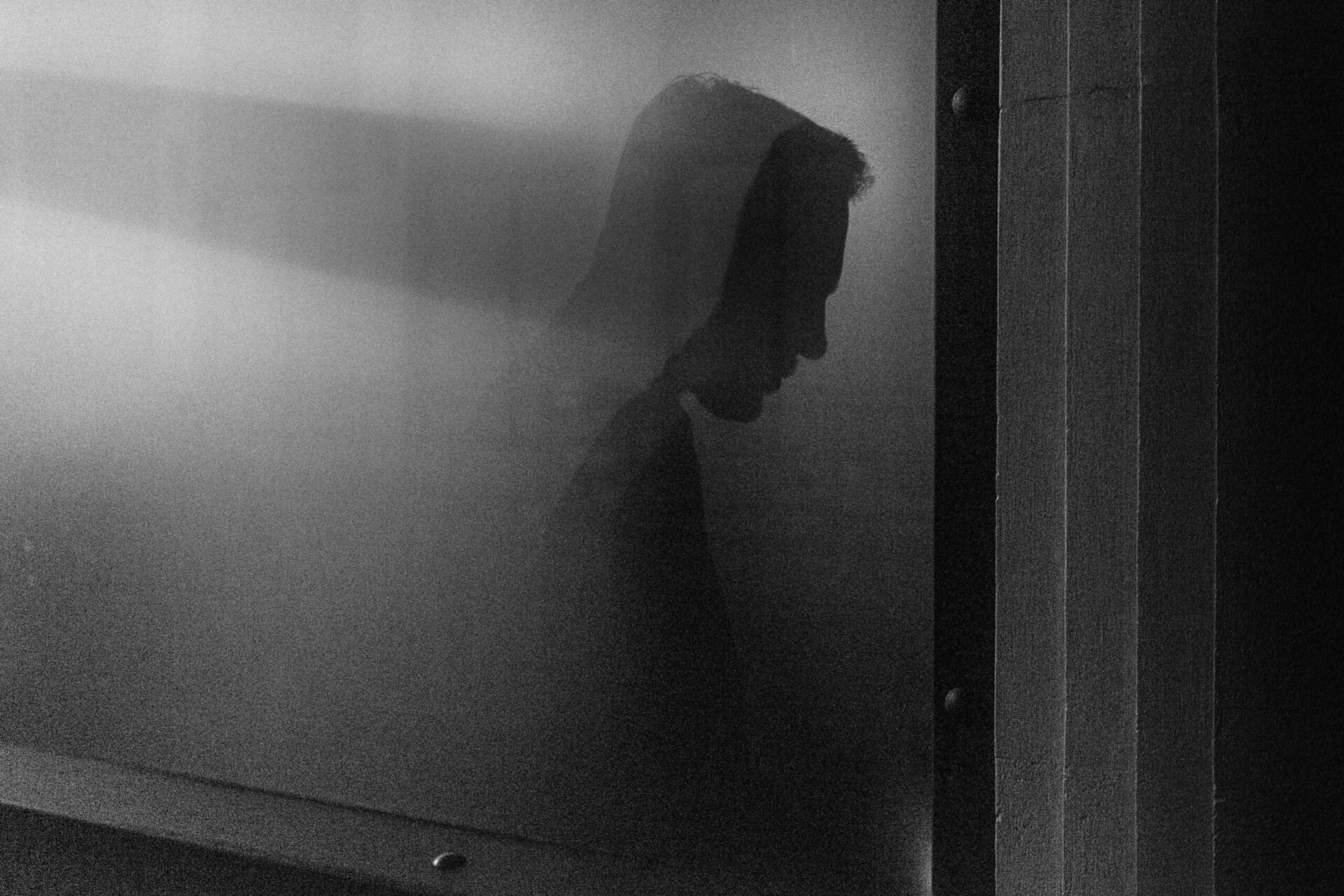Depersonalization can be disorienting. You suddenly feel as if you are floating above your body, or somehow observing your own thoughts. It may make you feel lost, disturbed, and confused about what is real. You’re left struggling to understand what’s happening and how to regain a sense of normalcy. In this blog, you’ll learn about common symptoms of depersonalization, its causes, and ways you can learn to manage and cope with this disorienting experience.
What is Depersonalization?
Depersonalization is a dissociative experience where you sense a detachment from your own body or thoughts. It’s as if you are observing yourself from outside your own body, or feeling as if you are in a dream. You may have felt like you were standing outside observing your own thoughts or body.
Common Symptoms of Depersonalization
Symptoms of depersonalization can range but most of them leave you feeling disconnected from you own body or thoughts. Some common symptoms of depersonalization include:
- A sense of observing yourself from the outside
- Having a distorted sense of time
- Feeling emotionally numb
- Experiencing a dream-like state
- Difficulty determining what is real or not real
- Feeling detached from your physical and emotional experience
Causes of Depersonalization
Trauma
Traumatic events take a toll on your mental health. When people go through traumatic experiences, such as abuse or an accident, they can feel extreme stress. For some people, they may experience a sense of depersonalization, which can be the mind and body’s way of coping with trauma. This dissociative state enables them to manage the overwhelming emotions and experiences by distancing themselves from those difficult and unwanted emotions and experiences. This may give some relief in the short term, but it can unfortunately cause long-term difficulties.
Stress
Depersonalization is also linked to chronic stress. If our mind is put under continuous pressure, we begin to experience dissociative symptoms to protect ourselves from such unrelenting distress. This way of coping can manifest as a sense of detachment from our thoughts and body, which creates a buffer against anxiety and stress. Although this depersonalization can be relieving in the moment, it can become more persistent and begin to cause bigger problems for a person down the line where they may begin to question their own reality.
Depression, Anxiety, and PTSD
Depersonalization is often associated with other mental health difficulties, including depression, anxiety, and PTSD. By themselves, these conditions could have an intensifying effect on feelings of detachment as a way of coping with their emotions. For example, depression can lead to numbness and anxiety might increase the desire to disconnect from yourself or others. There is a strong association of PTSD with dissociative symptoms because for people who have experienced traumatic events, their mind and body may utilize depersonalization as an escape from their unwanted experience.
Substance Use
Substance use, particularly hallucinogens and marijuana, can lead to symptoms of depersonalization. Since these substances can influence how someone thinks and perceives their environment, they can lead experiences of detachment from oneself. Hallucinogens, in particular, can affect your sensory experiences and self-awareness which can trigger episodes of depersonalization. Furthermore, chronic abuse of these types of substances can exaggerate depersonalization symptoms, making them occur more regularly. It’s important for people experiencing depersonalization related to substance use to seek professional help to address both their substance use and dissociative symptoms.
The Impact of Depersonalization
Daily Life & Depersonalization
Depersonalization can have a number of effects when it comes to day-to-day functioning and personal life. People can often have problems concentrating, making decisions, or performing everyday activities.
Feeling detached from reality can end up leading to decreased productivity and impact performance in work or school-related activities. Simple tasks, like cooking or driving, or even being around friends and family can become overwhelming. The feeling of being on “auto-pilot” or observing life from a distance can take a lot of the pleasure out of things people once enjoyed.
Emotional Consequences & Depersonalization
Depersonalization is emotionally exhausting. The experience of detachment can heighten anxiety and depression levels. Someone experiencing depersonalization can feel imprisoned and unable to come out from the feeling of being detached from everything, including themselves. It’s a hopeless feeling. Moreover, the emotional numbing from depersonalization can block the rewards of feeling pleasure or satisfaction, thus worsening depressive symptoms. Being unable to feel, then unable to express your need for help can also exacerbate feelings of isolation and loneliness.
Physical Health & Depersonalization
Depersonalization is linked with chronic stress, which can develop into more physical health issues. Recurring headaches can develop because of the constant mental strain. Stress can also lead to digestive issues, which may further lead to stomach ache, nausea, and even IBS. The long-term stress and detachment caused by depersonalization can actually weaken the immune system, making the person more vulnerable to diseases and infections. Unfortunately, people experiencing depersonalization can often feel drained because of the effect this experience can have on both their mind and bodies.
Depersonalization & Relationships
How Does Depersonalization Impact Relationships?
Depersonalization can significantly impact personal relationships. If someone is struggling with feeling detached from their emotions and experiences, engaging with loved ones becomes really tough. This type of detachment can make a partner, family member, or friend feel unimportant or overlooked. Someone experiencing depersonalization may appear unresponsive or emotionally unavailable, which can lead to a lack of authentic emotional engagement. This can be frustrating for everyone involved. It may be hard for loved ones to understand the experiences of the person with depersonalization, which further complicates matters as it brings more emotional distance and isolation.

Challenges Staying Emotionally Connected
Staying emotionally connected to others can be a major problem with depersonalization. The symptoms of numbness and detachment interferes with a genuine experience of getting to know yourself and others. Detachment often results in a lack of emotional intimacy with others because it becomes hard to share the joys and sorrows of life, or even empathize with another human being. Emotional numbness from depersonalization may become a barrier to forming and maintaining close relationships. This can gradually bring about feelings of loneliness and alienation – both for the sufferer and those around them.
Communication Issues & Social Isolation
Another area where depersonalization leaves a harsh effect is communication. Because people might feel disconnected from their experience, they often have difficulty expressing their thoughts and feelings. This difficulty in expression may lead to frequent misunderstandings or miscommunications, which can negatively impact relationships. The person experiencing depersonalization is perceived as indifferent, withdrawn, or unresponsive by friends and family, adding to their sense of isolation. Thus, people who go through depersonalization begin to withdraw from social situations and skip out on scenarios where they fear feeling unable to connect or communicate. It is this kind of social withdrawal that leads to isolation, creating a vicious circle of loneliness and detachment, making it even more difficult to come out of depersonalization.
Practical Tips for Managing Depersonalization
Immediate Relief from Depersonalization
- Engaging the Senses with Grounding Exercises
- Grounding exercises can help with depersonalization because they can bring us back to the present moment. This look like noticing something in your surroundings, focusing on textures, or even just listening to specific sounds around you. For example, you can get into the details of some plant right in front of you, focus on how your clothes feel, or listen to the birds outside. These sensory orientations help shift focus onto real tangible aspects of your life, fostering connection and presence.
- Calming the Nervous System through Breathing Techniques
- When you breathe deeply, your parasympathetic nervous system begins to regulate your mind and body, which can help alleviate these symptoms of dissociation. One of the ways to do this is by slowly inhaling through your nose, holding it for a few seconds, and then slowly exhaling through your mouth. You can do this a few times until you feel more centered and less alienated from both yourself and the environment around you.
- Connecting with Your Body: Getting Active
- Those who experience depersonalization often find that physical activity can help bring them back into their bodies. Walking, yoga, or stretching can help connect more with your body. Physical movement also helps in the release of endorphins that can naturally raise our moods and helps get us grounded into the physical sensations of the body. These effects work against the symptoms of depersonalization discussed throughout this blog.
Long-Term Relief from Depersonalization
- Self-Reflection
- Regularly engaging in self-reflection helps foster good mental health. When it comes to the experience of depersonalization, keeping a journal can help. Keeping records of your thoughts and feelings can help create more awareness of your emotional trends and triggers. This practice can help you to develop a better understanding of your emotions and experiences in life, ultimately helping you connect with yourself and reduce these symptoms.
- Building a Support Network
- A strong support system can serve as a strong resource when it comes to managing life with depersonalization. Friends and family can offer the needed emotional support to make someone less lonely and more connected. Having others around who can show support in the midst of these difficult experiences can provide a source of comfort and stability in the midst of feeling unsure and confused.
- Engaging in Enjoyable Activities
- Engaging in pleasurable and calming activities can have positive effects on mental health and help to relieve these symptoms. Getting and staying involved in such activities can lift your mood and provide a sense of well-being and connectedness. Whether it be painting, gardening, reading a book, or playing an instrument, engaging in activities you enjoy can help return you to the pleasure of living, while working to mitigate feelings of numbness and isolation.
Therapy for Depersonalization
Many people experiencing depersonalization can benefit from regular engagement in psychotherapy. Therapy offers a safe space where people can delve into and uncover the root causes of these symptoms, whether it has resulted from trauma or chronic stress. Trained therapists can provide support and understanding to individuals experiencing this confusing mental health issue and arm them with skills to help them navigate this complex experience. Therapy can reconnect a person to their feelings, develop strategies for managing their symptoms during these episodes, and move towards greater self-awareness and healthier relationships.

